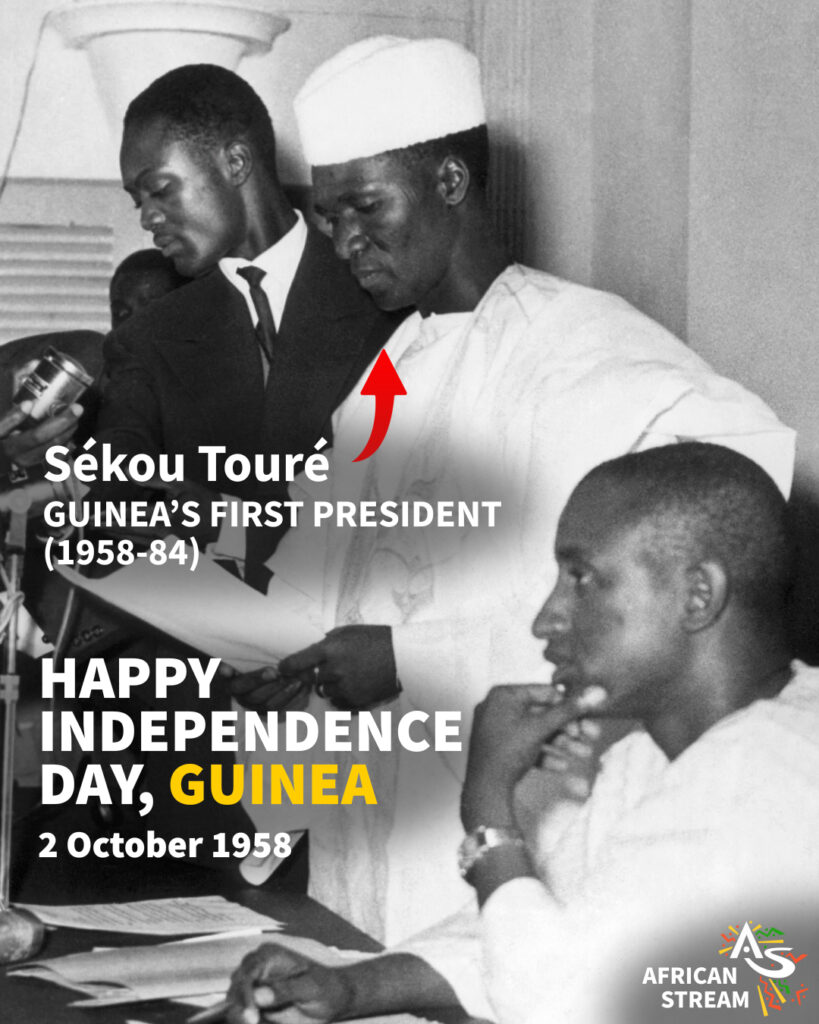The West African country of Guinea gained independence on this day, 2 October 1958, after 65 years of French rule.
When French President Charles de Gaulle offered the option of greater autonomy under French rule versus complete independence, Ahmed Sékou Touré (1922-84), Guinea’s founding leader said, ‘We prefer poverty in freedom to riches in slavery.’ His message resonated deeply with the people and led to a landslide vote favouring independence.

Starting his political journey in the labour movement, the plight of the masses influenced Touré’s political leanings. He maintained that fire even as president. With the French gone, Guinea nationalised foreign-owned companies and implemented extensive social reforms aimed at education, healthcare, literacy and infrastructure development. African socialism illuminated the path, emphasising self-reliance, African unity, and the rejection of neocolonial influences. Guinea joined the Non-Aligned Movement made up of countries recently having won independence and seeking to build a path forward together outside of either US or Soviet influence. Such countries were referred to as the Third World, with the US being the First World and the USSR and China being the Second World.
Guinea’s independence was a boon for pan-Africanism, as Touré helped establish the continent-wide Organisation for African Unity, precursor to the African Union, in 1963. Plus, he maintained amicable ties with US-based Pan-Africanists like Malcolm X and Kwame Ture. Then, when the CIA overthrew fellow Pan-African leader Kwame Nkrumah in Ghana, Touré offered Nkrumah refuge and appointed him honorary co-president.
Guinea’s struggle for liberation provides insights as Africa fights to rid itself of neocolonialism. Greater integration, solidarity and self-sufficiency are values of the recent coups in the neighbouring Sahel region, where Burkina Faso, Mali and Niger rose against France, tired of decades of exploitation and occupation.
Happy Independence Day, Guinea!
